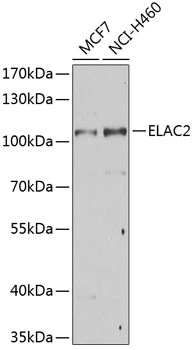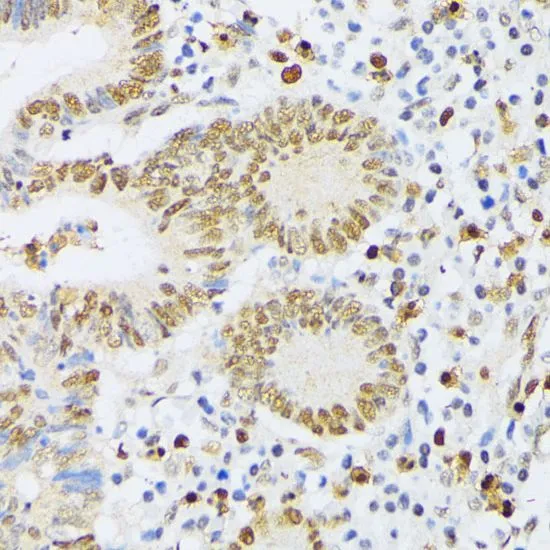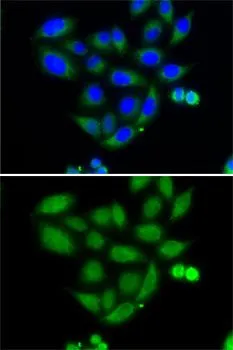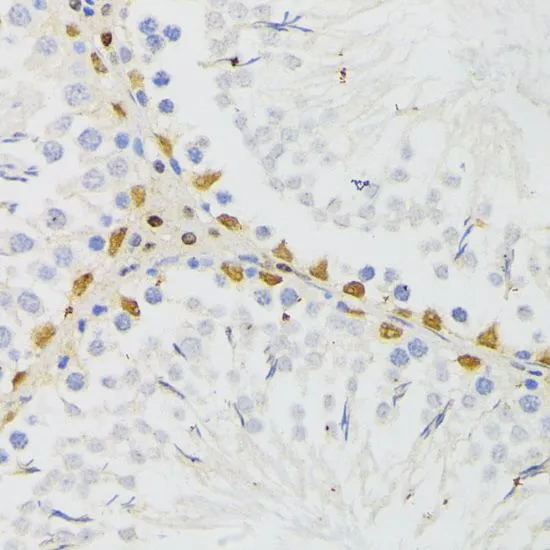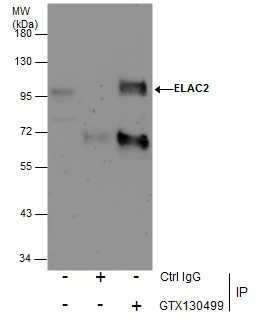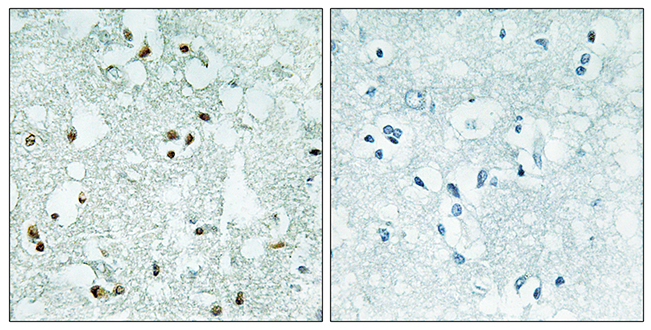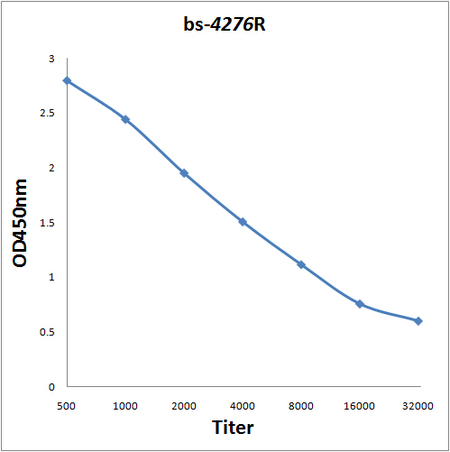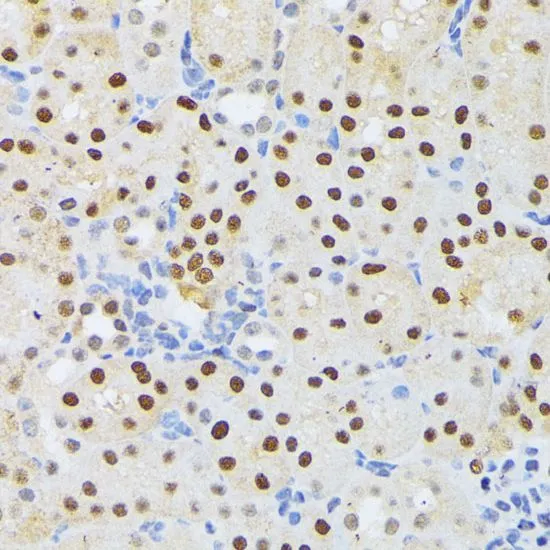
IHC-P analysis of mouse kidney tissue using GTX32582 ELAC2 antibody. Dilution : 1:200
ELAC2 antibody
GTX32582
ApplicationsImmunoFluorescence, Western Blot, ImmunoCytoChemistry, ImmunoHistoChemistry, ImmunoHistoChemistry Paraffin
Product group Antibodies
ReactivityHuman, Mouse, Rat
TargetELAC2
Overview
- SupplierGeneTex
- Product NameELAC2 antibody
- Delivery Days Customer9
- Application Supplier NoteWB: 1:500 - 1:2000. ICC/IF: 1:50 - 1:100. IHC-P: 1:50 - 1:200. *Optimal dilutions/concentrations should be determined by the researcher.Not tested in other applications.
- ApplicationsImmunoFluorescence, Western Blot, ImmunoCytoChemistry, ImmunoHistoChemistry, ImmunoHistoChemistry Paraffin
- CertificationResearch Use Only
- ClonalityPolyclonal
- ConjugateUnconjugated
- Gene ID60528
- Target nameELAC2
- Target descriptionelaC ribonuclease Z 2
- Target synonymsCOXPD17, ELC2, HPC2, zinc phosphodiesterase ELAC protein 2, RNase Z 2, elaC homolog 2, elaC homolog protein 2, elaC-like protein 2, heredity prostate cancer protein 2, putative prostate cancer susceptibility protein HPC2/ELAC2, ribonuclease Z 2, tRNA 3 endonuclease 2, tRNase Z (long form), tRNase Z 2
- HostRabbit
- IsotypeIgG
- Protein IDQ9BQ52
- Protein NameZinc phosphodiesterase ELAC protein 2
- Scientific DescriptionThe protein encoded by this gene has a C-terminal domain with tRNA 3′ processing endoribonuclease activity, which catalyzes the removal of the 3 trailer from precursor tRNAs. The protein also interacts with activated Smad family member 2 (Smad2) and its nuclear partner forkhead box H1 (also known as FAST-1), and reduced expression can suppress transforming growth factor-beta induced growth arrest. Mutations in this gene result in an increased risk of prostate cancer. Multiple transcript variants encoding different isoforms have been found for this gene. [provided by RefSeq, Sep 2009]
- ReactivityHuman, Mouse, Rat
- Storage Instruction-20°C or -80°C,2°C to 8°C
- UNSPSC12352203

